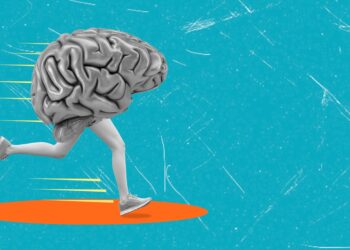Few things are as well established in nutrition science as the immense health benefits of low-carb and ketogenic diets.
Low-carb diets have been controversial for decades with many presuming that they raise cholesterol and cause heart disease due to their high fat content. Nevertheless, the vast majority of scientific studies show low-carb regimes are healthy and beneficial. Here are 10 proven health benefits of low-carb and ketogenic diets.
- Low-carb diets reduce your appetite
Hunger can be one of the trickiest parts of dieting and a key factor in why so many give up. However, low-carb eating leads to an automatic reduction in appetite. Studies show that when people cut carbs and eat more protein and fat, they end up consuming far fewer calories.
- Low-carb diets lead to weight loss, especially at the beginning of the regime
Studies repeatedly illustrate that people on low-carb diets lose more weight more quickly than those on low-fat diets—even when those on low-fat diets are actively reducing their calorie intake.
The reason is that low-carb diets help get rid of excess water from your body, lowering insulin levels and leading to rapid weight loss in the first couple of weeks. In studies aimed at comparing the relative impact of low-carb versus low-fat diets, people restricting their carbs sometimes lose 2-3 times as much weight without feeling hungry.
One study found a low-carb diet particularly effective in the first six months of the regime. After that, the difference in weight loss between low-carb and conventional diets was less noticeable.
- A greater proportion of fat loss comes from the abdomen
Not all body fat is the same. Where that fat is stored can determine health effects and risk of illnesses such as heart disease. The two major types are subcutaneous fat, which is under your skin, and visceral fat, which accumulates around the abdomen and is most typical in overweight men.
Studies show that low-carb diets are very effective at reducing this harmful abdominal fat, significantly reducing the risk of heart disease and type 2 diabetes.
- Triglycerides tend to drop
Triglycerides are fat molecules that circulate in your bloodstream. Fasting, as well as sedentary behavior, can cause their levels to rise and increase the risk of heart disease. Yet one of the main drivers of elevated triglycerides is precisely carb consumption, especially fructose. When people cut carbs, they tend to experience a very dramatic reduction in blood triglycerides.
- Increased levels of HDL cholesterol
High-density lipoprotein (HDL) is often called ‘good’ cholesterol. The higher your levels of HDL relative to ‘bad’ cholesterol, the lower your risk of heart disease. One of the best ways to increase your HDL levels is to eat fat.
- Reduced blood sugar and insulin levels
Studies show that cutting carbs lowers both blood sugar and insulin levels dramatically. Indeed, some people with diabetes who begin a low-carb diet may need to reduce their insulin dosage by 50% to compensate.
In one study in people with type 2 diabetes, 95% had reduced or eliminated their insulin medication within six months.
- May lower blood pressure
Elevated blood pressure, or hypertension, is a significant risk factor for many diseases, including heart disease, stroke and kidney failure. Low-carb diets are an effective way to lower blood pressure, improving your health and potentially extending your life.
- Effective in combating metabolic syndrome
Metabolic syndrome, which includes symptoms such as abdominal obesity and elevated blood pressure, is closely associated with risk of diabetes and heart disease, and a low-carb diet is highly effective in treating such problems.
- Improved ‘bad’ cholesterol
Studies consistently show that people with high ‘bad’ cholesterol levels are far more likely to suffer heart attacks. However, the size of the cholesterol particles is extremely important. Smaller particles are linked to a higher risk of heart disease while larger ones are linked to a lower risk. Low-carb diets increase the size of ‘bad’ LDL particles while reducing the number of total particles in your bloodstream.
- Therapeutic for several brain disorders
Finally, the brain. Your brain needs glucose as some parts of it can only burn this type of sugar. As a result, your liver produces glucose from protein if you don’t eat carbs. Yet a large part of the brain can also burn ketones, which are formed when carb intake is low.
This is why the ketogenic diet has been used to treat epilepsy in children who don’t respond to drug treatment. In one study, over half the children on a ketogenic diet experienced a greater than 50% reduction in their number of seizures, and 16% became seizure-free.
Low-carb and ketogenic diets are currently being studied for the treatment of other brain disorders as well, including Alzheimer’s and Parkinson’s disease.












